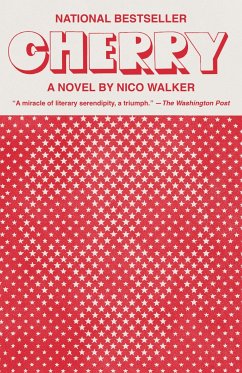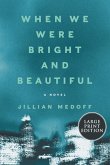2003, Cleveland. He has just arrived at uni when he meets Emily and falls for her immediately. They love each other passionately, just as they love Ecstasy. When Emily moves back home to Elba and splits up, he loses control and is expelled from college soon after. The army promises an interesting
future – or better: a future at all. As a medic he is briefly trained before they send him to Iraq. A…mehr2003, Cleveland. He has just arrived at uni when he meets Emily and falls for her immediately. They love each other passionately, just as they love Ecstasy. When Emily moves back home to Elba and splits up, he loses control and is expelled from college soon after. The army promises an interesting future – or better: a future at all. As a medic he is briefly trained before they send him to Iraq. A year in the Middle East, a year in the war. What he sees is unimaginable and to avoid the pictures in his head and to deal with the everyday loss of comrades, he needs more and more pills. When he returns, he cannot find a way back in life. With Emily, he’s got an on-and-off relationship which is mainly marked by their common use of heroin. A normal life seems possible, but the constant need of money for more drugs and the fact of passing out frequently hinders them from actually having it.
“Cherry” is the story of an average young man whose life spirals down into the abyss. It’s not the one big event that throws him off course, it’s a bit here and there, a relationship that breaks up, not getting enough credits at college, simply losing the aim in life. Of course, the experiences made in the war are a major event and it is hard to imagine that anybody can live through this without serious psychological disturbances or PTSD. The novel brings out the worst that drugs can do to somebody and it underlines how long this can go on without people around noticing anything, how long they can keep up appearances before wreaking havoc.
Yet, it is not only the topic, the narrator’s life that is shown bluntly by Nico Walker. What he does masterly, too, is to adapt the language to the situation:
The car bomb did what car bombs do and four were dead in the market. It would have been more but the sheep took most of the blast. So you had flesh and blood and wool on the pavement. You had bloodstains on the pavement, little lakes of blood.
There is no reason to embellish anything, it’s just the blunt reality that Walker describes in the most brutal and direct way. Most of the soldiers were “Cherries” which gives the novel its title: soldiers who have never been in a fight and whose behaviour is unpredictable and therefore a danger to the whole platoon. They were ill prepared in every possible way, but the worst is that they were ill prepared to return to a life in the civilian society. Walker doesn’t beat about the bush, his novel accuses their treatment, as well as the way drug addicts are taken care of, or rather: not taken care of. He shows a reality that nobody wants to see but which exists among us. The style of writing might not be for everybody, but it is perfect for this novel.








